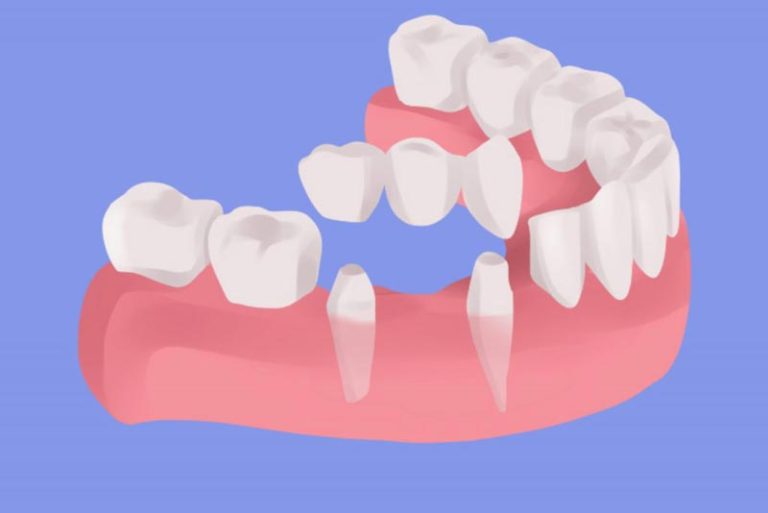After the loss of teeth, if you are looking for something to replace them, dentures can be an accurate solution. Yet the majority of individuals tend to ask if dentures are comfortable. It would help if you were comforted to eat and speak properly or even smile for that issue. If you are expecting to get dentures or have just begun to wear them, comfort may be one of the things on your mind. I will delve into the levels of comfort that modern dentures offer, what can affect how comfortable they are, and things you can do to make your adjustment easier in this blog.
The Evolution of Dentures from Past to Present
Dentures have been around for centuries, starting as simple designs made from wood and bone, and evolving into more elaborate models that even included human teeth. At first, these dentures were uncomfortable and very painful to wear because of the poor materials used. Dentures have advanced far in the past few days. Today, dentures are made of modern materials and are personalized to fit perfectly. This provides a far better comfort level than the dentures of the old days. New-age dental assistants have teeth made out of porcelain and acrylic.
What Factors Affect Denture Comfort?
Different factors significantly affect the comfort of dentures and how well they function. Here is what you need to know to make wearing dentures a better experience.
Fit and Alignment
Several factors contribute to overall comfort, but one of the most important when it comes to dentures is their fit. Naturally, they are not as comfortable and can cause pressure sores or irritation, making eating difficult. When a partial or complete denture is created today, it is generally made custom to your teeth and gums by taking exact molds of impressions from within your mouth.
Material Quality
The materials from which dentures are made will significantly affect their comfort. Stronger materials like premium-quality acrylic or flexible materials such as Valplast will not only last longer but also look and feel more natural. They also tend to be less irritating to the gums.
Types of Dentures
There are a few different types, and each provides varying degrees of comfort:
Full Dentures
These types are used when all the teeth in someone’s mouth have been removed. It is also more comfortable when well-fitted since no natural teeth must be accommodated.
Partial Dentures
These are for people who have some natural teeth left. This feature means that partial dentures can be more stable and thus much less likely to come loose, which is one reason they may also feel slightly more comfortable.
Implant-Supported Dentures
These dentures are attached to dental implants for even more excellent stability and comfort. It will not move as much, leading to less gum irritation.
The health of Your Gums and Jawbone
The state that your gums and jaw are in can significantly affect how comfortable you will feel with a complete set of artificial teeth. Healthy-looking gums and strong jaw bones are beneficial because they provide the best support for dentures. If you have gum disease or bone loss issues, these must be corrected before dentures are made so that they can fit most comfortably.

Adjusting to New Dentures
If you get dentures for the first time, do not worry when they feel uncomfortable. You have to allow your mouth to get used to the new device. The most common elevation problems are sore spots and extra salivation, making it difficult to speak or eat. This period is generally known as the ‘breaking-in’ time of the first few weeks with new dentures. This can make your dentures seem too large, and your food may taste different. The good news is although you may experience these problems at the beginning, they typically disappear as your mouth adapts to its new denture.
Tips for a Smooth Adjustment
Getting used to new dentures can be challenging, especially during the first few weeks, as your mouth learns how to deal with these changes. You can successfully manage the transition to wearing dentures with some adjustments and helpful tips. The period where you adapt to eating, speaking, and feeling comfortable with dentures will likely be shorter, giving you more confidence as you return to your usual activities. Start with foods that are easy to chew and softer textures before moving on to harder ones. Reading aloud or speaking can also help you adjust to talking with your new teeth. If your dentures feel loose, added stability and comfort with a denture adhesive can be helpful. Schedule post-insertion appointments with your dentist while you get used to the new change in your mouth and ask for fine-tuning as required.
How to Enhance Denture Comfort
Keep Your Dentures Clean
One factor that will affect how comfortable dentures are depends on regular cleaning. This can lead to bad breath, discomfort, and, with the worst luck, an infection by increasing debris of plaque or food particles on your dentures. Regularly using a denture brush and soaking them in a cleanser keeps them clean.
Proper Storage
Dentures should be stored in water or a denture-soaking solution when not being used. This helps prevent them from drying out and warping, making them less desirable.
Maintain Good Oral Hygiene
Even people with complete dentures should have proper oral hygiene. Your gums, tongue, and any remaining natural teeth must be kept clean; otherwise, you may become vulnerable to dental health problems that could impact the feel of your dentures.
Routine Dental Visits
It is essential to have routine visits with the dentist so that they can continue checking your dentures fit. Dentures are adjustable and can be trimmed down to make them a better fit for your mouth.
Common Issues and Troubleshooting
Suppose your dentures are causing you intense discomfort, such as creating sores or not fitting well anymore. In that case, it may be time to get an adjustment. As you grow older, the shape of your mouth may change, and dentures can become loose. However, your dentist can adjust these aspects to prevent pain. Occasionally, dental implants are suggested to improve the strength of repair. If your dentures continually do not align properly and you struggle to chew or speak with them, your fit may be off. Ask your dentist to discover the problem and find ways how you can solve it.
The Role of Implant-Supported Dentures in Comfort
The most comfortable option available is implant-supported dentures. Dentures supported by dental implants rest on a secure, stable foundation that mimics the feel of your natural teeth, giving them a level of comfort not possible with traditional dentures.
The Unique Comfort of Implant-Supported Dentures
Implant-supported dentures provide superior stability by being fixed with implants, preventing shifting and eliminating issues like sore spots or irritation that can occur with regular dentures. They also offer better functioning, meaning the teeth can choose food for you without chewing. Additionally, these dentures provide lasting comfort as they eventually meld with your jawbone, closely mimicking the feel of natural teeth.
Conclusion
Dentures are an effective treatment for missing teeth when taken care of properly and fit correctly. There may be an initial adjustment, but implementing good denture care and maintenance can increase your overall comfort. Our highly knowledgeable dentist and team at Walk-in Family Dental are dedicated to providing our patients with comfort. Your comfort and natural fit with your dentures are our dental team’s goal. If you are new to wearing dentures or require repairs of current ones, we take the time necessary with our patients, providing personalized care and attention to each individual. If you have questions or concerns about denture comfort or are thinking about getting better-fitting dentures, please feel free to contact us. Our expert team will walk you through it all, ensuring you can smile, talk, and eat confidently. Contact Walk-in Family Dental today for more information or to make an appointment. Call us today to get the comfortable smile you deserve.








